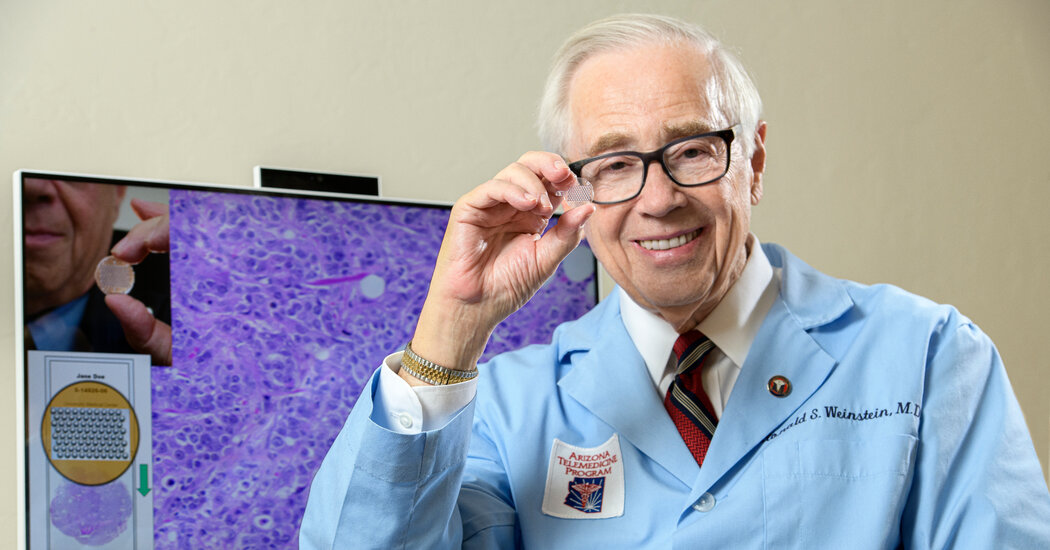
Dr. Weinstein finished his medical education at Tufts University in 1965 and completed his residency at Massachusetts General Hospital, which at the time was experimenting with an early telemedicine program linking it by television camera to a clinic at Logan Airport in Boston. He was asked to look in on a few cases, and “that stuck in my mind,” he said.
In 1975 he became chairman of the pathology department at Rush-Presbyterian in Chicago, and 11 years later he was ready to introduce the idea of telepathology, founding Corabi Telemetrics, one of several companies he created or helped create to bring ideas developed in academia to market.
“Sears and Roebuck never intended to get into the financial business,” he said in a speech a few weeks before the 1986 demonstration of his new technology, referring to the retail giant’s expansion into banking at the time. “But somewhere along the line, engineers figured out how to put satellites in space and revolutionized the financial industry. And what I’m going to talk about today is how the very same changes are going to revolutionize the way that we practice medicine.”
Dr. Weinstein took his expertise to the University of Arizona in 1990, becoming head of the pathology department at its College of Medicine. By the mid-1990s, telemedicine was well established, at least as a concept, and Bob Burns, a member of the Arizona House of Representatives with a background in computer programming, took an interest in it and secured financing for a statewide initiative.
When the state asked the university to oversee the project, “they gave us the best man they had,” Mr. Burns, who became a state senator, said in a phone interview. That was Dr. Weinstein, who was named director when the program was initiated in 1996.
The project, Mr. Burns said, made a particular effort to bring medical expertise to remote areas, Indian reservations and prisons — and even abroad, to places like Panama.
Elizabeth A. Krupinski, a longtime colleague and collaborator now at Emory University in Atlanta, said Dr. Weinstein had both vision and people skills.



